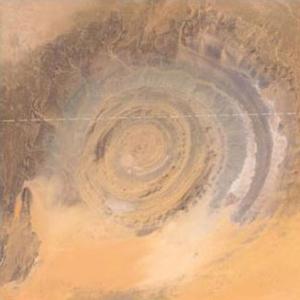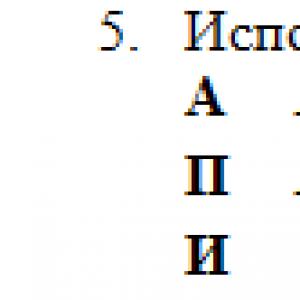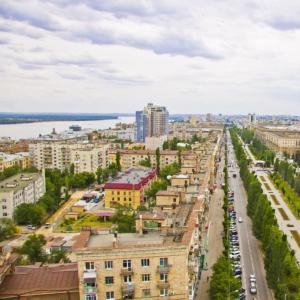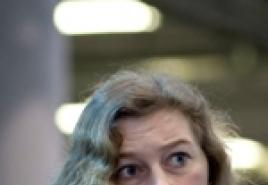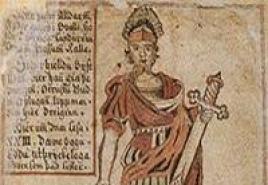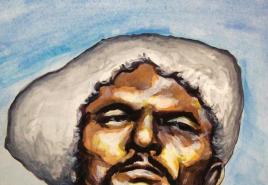Self-education is the topic of cognitive and experimental activities of preschoolers. Report on self-education “Children’s experimentation as a means of developing cognitive activity of preschoolers
self-education teacher
MBDOU "Smolkovo kindergarten"
Shilova Yulia Mikhailovna
Topic: “Experimentation as a means of developing cognitive activity in preschool children”
Relevance.
What I hear - I forget
What I see I remember
I understand what I am doing.
Confucius.
Throughout preschool childhood, along with play activities, cognitive activity is of great importance in the development of a child’s personality, in the processes of socialization, which is understood not only as the process of assimilation of knowledge, abilities, skills, but, mainly, as the search for knowledge, the acquisition of knowledge independently or under the tactful guidance of adults, carried out in the process of interaction , cooperation, co-creation.
The reasons for the intellectual passivity of children often lie in the limited intellectual impressions and interests of the child. At the same time, being unable to cope with the simplest educational task, they quickly complete it if it is carried out in a practical manner or in a game. Research activities are of great interest to children. Everything that the child hears, sees and does himself is assimilated firmly and for a long time.
The modernization of education taking place in the country, features of state policy in the field preschool education on modern stage, necessitated important changes in defining the content and methods of organizing pedagogical process V kindergarten. In the children's activities of the modern child one can see the desire for integration, that is, unification different types activities such as experimentation, creation of micro- and macro-projects, improvisation, modern children are attracted by the process itself, the opportunity to demonstrate independence and freedom, implement plans, the opportunity to choose and change something themselves.
Research activities and experimentation help build relationships between the teacher and children on the basis of partnership. Therefore, I chose the topic of self-education “Experimentation as a means of developing the cognitive activity of preschoolers”
While working on this topic, I set myself
tasks:
Create conditions for children’s research activity;
Encourage and guide children's research initiative, developing their independence, ingenuity, and creative activity.
PERSPECTIVE PLAN FOR SELF-EDUCATION
Stages | Completion deadlines | Result |
|
1. organizational - introductory | Studying methodological literature | October, November, December. | Compiling a card index of books, articles from magazines, compiling a card index of experiments. |
Development of a lesson plan for children on the topic of self-education. | October. | Long-term planning of experimental activities. |
|
Consultation for parents. "Child explorer in kindergarten." "Organization of children's experimentation at home" | October november | Introducing parents to plans for working in the field of experimentation, with algorithms for simple experiments with children at home. |
|
2. practical | Conducting experiments with children directly educational activities. | Since October. | Preparing a presentation on experimentation. |
Working with parents. | Within a year. | Making a table for experimentation (in development) and equipping it. |
|
Consultation on the topic: “Development creativity children through experimental activities" “Developing children's curiosity through children's experimentation” Planting onions and dill in a group. | December April April | As the onions, dill, and parsley grow, the students watch the growth of the seeds and take care of the plantings. As they grow, onions, parsley, and dill can be eaten in a group during lunch. |
|
3.final. | Second half of May. | Speech on the topic of self-education at the pedagogical council. |
Long-term planning of experimental activities in middle group
November – December.
Experimenting with air
Target: Develop children's cognitive activity and initiative; develop the ability to establish cause-and-effect relationships based on a basic experiment and draw conclusions; clarify children’s concept that air is not “invisible”, but a real gas; expand children's understanding of the importance of air in human life, improve children's experience in observing safety rules when conducting experiments.
Experiments And experiments | Material and equipment | Integration |
| Balloons, plastic bags, straws, transparent plastic glasses, pinwheels, ribbons, a container of water, napkins, a candle, a jar, ready-made cards, raw potatoes. | Drawing Topic: “Funny blot” (blowing paint through a straw) Manual labor Topic: “New Year Christmas Trees” (thread work made by winding a prepared form with glue thread.) |
October – November.
Experimenting with sand
Target: To acquaint children with the properties of sand, develop the ability to concentrate, systematically and consistently examine objects, the ability to notice subtle components, develop children’s observation skills, the ability to compare, analyze, and generalize. Establish cause-and-effect relationships and draw conclusions. Introduce safety rules when conducting experiments.
Experiments and experiments | Material and equipment | Integration |
| Dry, clean sand; large, flat tray; small trays (plates), a sieve, water, clay, hourglasses, magnifying glasses, tablets, ceramics, measuring cups, transparent containers, paper tubes, plastic bottles, a jar, a pencil. | Drawing
|
January – February
Experimenting with water
Target: To form in children knowledge about the importance of water in human life; introduce the properties of water: absence of its own form, transparency, water is a solvent; the importance of water in human life: the water cycle in nature, the source of drinking water, life and diseases of water bodies. Develop skills in conducting laboratory experiments:
- Strengthen the ability to work with transparent glassware: glass cups, chopsticks;
- Strengthen the ability to work with unfamiliar solutions, while observing the necessary safety measures.
Develop social skills: the ability to work in a group, negotiate, take into account the opinion of a partner, as well as defend your own opinion, prove that you are right. Instill respect for water. Activate and enrich children's vocabulary with nouns, adjectives, verbs on the topic.
Experiments and experiments | Material and equipment | Integration |
| Transparent glass glasses of various shapes, filter paper, substances (salt, sugar, flour, starch), paints, herbal infusion of chamomile or calendula, vegetable oil, balloon, measuring cups, pebbles, small toys (kinder). | Drawing:
|
April
Magnet and its properties. Experimenting with a magnet
Target: Introduce children to the concept of magnet. Form an idea of the properties of a magnet. Activate children's knowledge about the use of magnet properties by humans. Develop children's cognitive activity and curiosity when conducting experiments. Develop correct relationships with peers and adults.
Experiments and experiments | Material and equipment | Integration |
| Magnets of different sizes, metal objects, wooden and plastic objects, water, a magnet on a stick, string, various buttons. | Drawing
|
Municipal budget preschool educational institution kindergarten "Mashenka"
Teacher self-development program
«
Experimentation as a means of developing cognitive activity in preschool children
»
Kondratyeva Irina Viktorovna
Education - secondary specialized,
1 qualification category.
Work started on September 1, 2014.
Expected to finish on May 30, 2017.
2014 - 2017
Table of contents:
Introduction
Chinese saying
What I heard I forgot
What I saw I remember
What I did I know
society of one of current issues raising children preschool age The development of the intellectual and creative potential of the personality of a preschool child is recognized by improving the skills of research behavior and developing research abilities.
The main directions stand out in the process of solving this problem in a preschool institution are:
- children and educators' ideas about research learning as the leading method cognitive activity;
Assistance dissemination educational programs And pedagogical technologies conducting educational research with preschoolers;
Assistance creative research activity of children;
Stimulating preschoolers' interest in fundamental and applied sciences;
Promoting formation in children scientific picture peace;
Popularization of the best methodological developments on educational and research work of preschool children.
To gain knowledge of historically accumulated experience, many techniques and means are used, but they all fit into five general didactic teaching methods: explanatory-illustrative, reproductive, method of problem presentation, heuristic and research
What is meant by research method teaching preschoolers?
The child perceives and assimilates material as a result of satisfying his need for knowledge.
Cognitive activity of children consistsin searching and solving complex issues that require updating knowledge, skills analyze, see a pattern behind individual facts.
The main components of the research process: identifying the problem, formulating hypotheses, observations, experiences, experiments and conclusions made on their basis.
The principle of phasing in organizing a research search for children, which is based on a gradual reduction in the information provided by the teacher and an increase independent activity preschoolers.
Originality research activities is determined by its purpose: the study involves obtaining an answer to the question of why this or that phenomenon exists and how it is explained from the point of view of modern knowledge.
In order for research activities to arouse interest in children, it is necessary to selectthe content available understood them. The surrounding world and nature are the closest and most understandable to a child. In the process of research, knowledge about the world around us is gradually enriched and systematized., children'sfantasies are replaced by a real explanation of the unknown and incomprehensible.
Relevance of the topic:
Throughout preschool childhood, along with play activities, cognitive activity is of great importance in the development of the child’s personality, in the processes of socialization, which is understood not only as the process of acquiring knowledge, abilities, skills, but, mainly, as the search for knowledge, the acquisition of knowledge independently or under the tactful guidance of adults, carried out in the process of interaction, cooperation, co-creation.
The reasons for the intellectual passivity of children often lie in the limited intellectual impressions and interests of the child. At the same time, being unable to cope with the simplest educational task, they quickly complete it if it is carried out in a practical manner or in a game. Research activities are of great interest to children. Everything that the child hears, sees and does himself is assimilated firmly and for a long time.
The modernization of education taking place in the country, the features of state policy in the field of preschool education at the present stage, have led to the need for important changes in determining the content and methods of organizing the pedagogical process in kindergarten. In the children's activities of a modern child one can see the desire for integration, that is, the unification of different types of activities, such as experimentation, the creation of micro- and macro-projects, improvisation; modern children are attracted by the process itself, the possibility of exercising independence and freedom, realizing ideas, the ability to choose and change what - then yourself.
Research activities and experimentation help build relationships between the teacher and children on the basis of partnership. Therefore, I chose the topic of self-education “Experimentation as a means of developing the cognitive activity of preschoolers”
In the course of research activities, children develop initial key competencies:
Socialization (through experiments, observations, children interact with each other);
Communication (speaking out the results of experience, observations)
Informational (children gain knowledge through experiments and observations)
Health-saving (through conversations about the benefits of fruits and vegetables)
Activity-based (selection of materials for experiments and the sequence of their implementation is underway)
I set myself
Target:
Create conditions for children’s research activity;
Encourage and guide children's research initiative, developing their independence, ingenuity, and creative activity.
Through tasks:
Help to reveal to children amazing world experimentation, development cognitive abilities;
Study methodological literature on this topic;
Help the child master the appropriate vocabulary, the ability to accurately and clearly express his judgments and assumptions;
Develop mental operations, the ability to put forward hypotheses, and draw conclusions.
Encourage children to be active in order to resolve a problem situation.
To promote independence and development.
Stages of implementation of the self-education program
Forms of work
Practical output note .
Deadlines .
Theoretical stage. Studying methodological literature.
*N.A. Korotkova – Educational process in groups of children of senior preschool age.
*A.I. Savenkov – Methods of research training for preschoolers
*Child in the world of search is a program for organizing the search activities of preschool children.
*A.I. Savenkov - Methods of research training for younger preschoolers.
*N.Ya. Mikhailenko, N.A. Korotkova – Organization of story-based games in kindergarten.
*O.V. Dybina - The unknown is nearby. *Experiments and experiences for preschoolers.
*Studying the methodology of L.A. Wenger
L.N. Prokhorova “Choice of Activity” aimed at studying the motivation of children’s experimentation.
* Poddyakov A.I. Combinatorial experimentation of preschoolers with a multiconnected “black box” object // Questions of psychology, 1990.
* Tugusheva G.P., Chistyakova A.V. Game-experimentation for children of senior preschool age // Preschool pedagogy, 2001. - No. 1.
* Ivanova A.I. Natural science observations and experiments in kindergarten.
* Internet resources
Studying articles in magazines :
*Preschool education,
*Child in kindergarten,
*Hoop.
Compiling a catalog of books and articles from magazines.
In current3 years
Practical stage.
Working with children
*Use of the methodology in classes, in free activity, in play, and in individual work with children.
* Development of notes with elements of experimentation.
*Compiling a series of experiments for preschoolers.
* Organize and enrich the subject-development environment for the implementation of experimental activities of children.
*Lesson notes, projects, photo exhibitions.
*Open classes.
In current3 years
Working with parents
*Consultation for parents
*Consultation for educators “Maintaining experimental activity zones”
*Consultation for parents“The role of the family in the development of the child’s search and research activity”
*Consultation for parents“Organization of children's experimentation at home»
*Consultations, participation in projects, moving folders, photo exhibitions,
rrecommendations.
In current3 years
Working with teachers
* Consultation for educators “Maintaining experimental activity zones”
*Consultation for teachers of preschool educational institutions “Organization and conduct of experiments with preschoolers”
*Memos for teachers “Approximate structure of an experimentation lesson”, *Planning work with children on experimentation”
*Use of media files in educational activities and in educational activities in special situations.
*Exchange of experience on the sites “Self-education in search and research activities”
*Studying the experience of preschool teachers
*Studying methods and technologies of teachers on the Internet.
* Reminders about the general rules of research learning.
*Designing exhibitions of literature and didactic material.
*Conducting a master class for teachers.
In current3 years
Report form
*Publishing articles innetwork educational spaces ;
*Spending the Day open doors for teachers and parents;
*Generalization from work experience;
*Report at teachers' meetings;
*Generalization of teaching experience at the municipal level
*Presentation of an analytical report to the administration.
*Placement of developments for children’s activities and work in online educational spaces.
*Presentations.
Expected result:
Reassessment of pedagogical values, one’s professional purpose;
Desire to improve the educational process;
Development of presentations.
Development and implementation of didactic materials.
Development and conduct of classes and publications in online educational spaces, in methodological journals.
- development of long-term planning forexperimental activities of children in all age groups.
Reports and speeches to disseminate work experience.
Self-education form : individual.
Conclusion:
Preschool childrenby nature, inquisitive explorers of the world around them. Search activity expressed inneeds to explore the world around us, is genetically determined, is one ofmain andnatural manifestations of the child's psyche. INThe basis of the experimental activities of preschoolers is the thirst for knowledge, the desire fordiscovery, curiosity, need formental impressions, andOur task is to meet the needs of children, which iswill in turn lead tointellectual, emotional development. Children's experimental activities are aimed atdevelopment of independent research skills, promotes the development of creative abilities andlogical thinking, combines the knowledge gained induring the educational process, andintroduces tospecific vital problems. If motivation is built correctly, then there will definitely be positive results.
Evgenia Yarovenko
Report on self-education “Children’s experimentation as a means of developing cognitive activity of preschool children”
WITH himself At birth, a child is a discoverer, an explorer of the world that surrounds him. And especially the child - preschooler. Chinese proverb reads: “Tell me and I’ll forget, show me and I’ll remember, let me try and I’ll understand.”. This is how a child learns everything firmly and for a long time when he hears, sees and does it himself. At active child's action in the process knowledge all senses are active. Scientists have proven that the more senses involved in the process at the same time knowledge, those better person feels, remembers, comprehends, understands, assimilates, consolidates the material being studied.
Therefore, than the child touches more actively, sniffs, experiments, explores, feels, observes, listens, reasons, analyzes, compares, that is, actively participates in the educational process, the faster his cognitive abilities develop, and rises cognitive activity.
While working on this topic, I set myself target: creating conditions for cognitive development interest of children in the experimental process - experimental activities.
To achieve this goal, I identified a number of tasks:
1. Study methodological literature on this topic.
2. Create conditions for research children's activities.
3. Encourage and guide the research initiative of children, developing their independence, ingenuity, creative activity; help reveal a wonderful world to children experimentation, develop cognitive abilities.
4. Involve parents in the process experimentation in everyday life.
Throughout the year, I studied a variety of methodological literature on this topic, namely Tugusheva G.P., Chistyakova A.E. " Experimental activities of children of middle and senior preschool age"; Nishcheeva N.V. “Experimental experimental activities in preschool educational institutions; Dybina O. V. "Child and the world around"; scientific and methodological journal "Methodist"- article "Ecological laboratory in the village" author Potapova T.V.; magazine "Child in the nursery" articles: "Little ecologists" V. S. Afimina; "We are wizards" L. B. Petrosyan; "School of Magicians" N. A. Miroshnichenko. I also studied the experience of my colleagues on the Internet. websites: website, nsportal.ru.
At the RMO I got acquainted with the work experience of d/s No. 10 "Squirrel" on topic: « Children's experimentation and modeling - as the basis of search and research activities.”
I tried to organize it this way children's activities, including independent so that pupils exercise themselves in the ability to observe, remember, compare, act, and achieve their goals. For quality experiments I chose the right one didactic material , and a variety of equipment. Something that is attractive, funny, interesting, arouses curiosity and is fairly easy to remember. I didn’t forget that the material with which the child did something is especially easy to remember and retains in memory for a long time myself: felt, cut, built, composed, depicted. During our experiments children gain experience in creative, exploratory activities, put forward new ideas, and update previous knowledge when solving new problems.
Therefore, I created favorable conditions and creative environment for the development of cognitive activity of preschool children. In a corner of nature equipped "mini laboratory". It is equipped with special equipment, a variety of material:
- assistant devices: magnifying glass, hourglass, magnets;
-natural material: pebbles, clay, sand, shells, cones, feathers, leaves, etc.;
A variety of vessels made from various materials (plastic, glass, metal);
-medical materials: pipettes, wooden sticks, syringes, measuring spoons, rubber bulbs, etc.;
- other materials: mirror, balloons, colored and transparent glass, sieve, etc.
-recycled material: pieces of leather, fur, fabric, cork, etc.
This is where children spend independent and joint research activities with adults. One of the main tasks of the laboratory is how development environment– teach children to ask questions, on one's own search and find answers to them.
I try to include experimentation in various types activities: play, work, walks, observations, independent activity. This helps maintain children's cognitive interest. My experimental work with children is based on observations in nature in warm and cold period. I pay special attention to the warm period, when children spend a lot of time outdoors. I try to consolidate and clarify the knowledge already acquired by children, introduce with new materials in an entertaining, game form. To spend experiment independently and in full, the child must be able to control his senses, analyze the information obtained with their help, perform certain actions, use tools, pronounce his actions and formulate conclusions, and explain the results of his work.
Experienced – experimental children's activities correspond to the age and capabilities of the children. I introduce them to the properties snow: snow melts in warmth and turns into water; In the cold, water freezes and turns into ice. For example, the children and I conducted an experiment with snow. They brought the snow into the group, and after a few minutes the snow began to melt. Done conclusion: The condition of the snow depends on the air temperature. Then, we conducted the following experiment and played it out in the form of a fairy tale "The Adventure of a Curious Kitten", where the kitten went for a walk and along the way got into various situations. We poured boiling water into a liter jar and closed it with a lid with holes, putting a piece of snow on top. Under the influence of steam, the snow began to rapidly melt. So the curious kitten got caught in the rain. Let's do conclusion: The higher the temperature, the faster the snow melts. We studied the taste and color of water, got acquainted with the properties of water"transparency". Studying the properties of sand, the children concluded that dry sand is light in color, free-flowing, and cannot be used to make a Easter cake. Wet sand is dark and easy to sculpt with. Getting acquainted with the properties of paper and fabric, the children notice that the paper is torn. Depending on its thickness, it can be wrinkled and become wet in water. The fabric consists of threads, wrinkles, and is easy to wash and iron. On question: “What can you draw with?”- children answer that they can draw with paints, chalk, pencils, forgetting that at an early age they tried to draw with porridge and compote. It is important to note that nature gives us different natural colors. I offered the child sheets of thick paper, pieces of beets, greens, and several berries. The child had the opportunity to leave a mark on a sheet of paper using vegetables, berries and herbs, to check when the drawings turn out brighter, what color these natural paints are. From plasticine you can sculpt not only figures, but also casts. For example, a piece of plasticine pressed against the bark of a tree will convey all the bends and cracks on its surface. I suggested that the children do this with different types of trees. Such games and activities introduce children to the variety of textures of materials.
Yes, in the process experimentation I taught my students groups:
See and highlight the problem;
Accept and set a goal;
solve problems: analyze an object or phenomenon, highlight essential features and connections, compare various facts, put forward hypotheses, assumptions, select tools and materials for independent activities, implement experiment;
Express judgments, draw conclusions and conclusions.
My experience has shown that experimental activity involves, "attracts" not only to yourself preschoolers, but also their parents. It is known that not a single educational or educational task can be successfully solved without fruitful contact with the family. I build my communication with parents on the basis of cooperation. I use various methods interaction with family: visual, verbal, practical. To this end, I have developed consultations for parents about research activities on the following topics: « Development children's curiosity through children's experimentation»; "Organization children experimenting at home» ; has released moving folders on this issue.
It was planned open lesson on topic: "Travel with a Drop". Target classes: introduce children with the properties of water. Water is a liquid, it has weight, is tasteless, and transparent.
Children are happy to tell their parents about their discoveries, perform similar experiments at home, learn to pose problems, put forward hypotheses and solve them yourself.
As a result of work for the year I:
I studied theoretical material on this topic in pedagogical and methodological literature.
Created a card index of experiences and experiments.
Created a card index didactic games on experimental activities.
Created conditions for organization experimental activities of children in a group.
Developed GCD notes for experimentation.
Conducted consultations for parents on this topic.
I designed moving folders for the parents' corner.
After analyzing the results of your pedagogical activity, I came to the conclusion that experience in this area is very effective. This teaching method is experimental activities, quite powerful activates cognitive interest in children and contributes to the acquisition of new knowledge and skills by children.
To summarize, I would like to say that by encouraging childish curiosity quenching your thirst knowledge little whys and by directing their research initiative, we were able develop children have ingenuity, creativity activity,
cognitive interest; opened up a wonderful world to children experimentation.
Self-education plan
teacher
Topic: “Development of cognitive activity in children early age through experimentation."
Topic: “Development of cognitive activity in children of primary preschool age through experimentation.”
Goal: increasing the professional level of knowledge, professional skills and competence on the topic of developing cognitive activity in children of primary preschool age through experimentation.
Tasks:
Analyze scientific and methodological literature and practical experience on this topic.
Identify the significance of children's experimentation in the system of children's cognitive development.
Compile a card index of elementary experiments for children of primary preschool age.
Prepare written information for parents on this topic.
Prepare a report on the work done.
Expected result:
Increasing the level of professional competence.
Arouse interest in experimentation in children of primary preschool age.
Joint relationship building with parents.
Involving parents in educational process pupils.
Stages of self-education
No. Stages Objectives Area of activity Period
1 Information and preparatory
Raising the general cultural level.
Studying the state of the selected topic. Selection and study of methodological literature on this topic.
Search for addresses of best practices for educators (via Internet resources). September -
October
2 Practical
Implement in pedagogical system experimental activities Prepare a consultation for teachers.
Make a card index of experiments.
Organize an open viewing for teachers.
Working with students.
Inform parents on the topic “Development of cognitive interest in children of primary preschool age through experimentation.” November–December
January – April
3 Final Develop methodological recommendation on this topic. Write a report on this topic.
Providing expertise on the topic. May
Stage. Informational and preparatory.
Tasks:
Getting to know the new regulatory documents on issues of preschool education.
Studying educational and scientific - methodological literature.
Studying new pedagogical technologies.
No. Event Period
1 Selection and study of scientific and methodological literature:
MBDOU program "Kindergarten No. 35".
Internet resources
http://www.maam.ru/
http://www.nsportal.ru/ September
2 Development and selection of experiments for children’s cognitive activity
Preparation of material.
Compiling a card index of experiments. October
Stage. Practical.
No. Event Period
1 Working with children
Joint experimentation of children and teacher with water, sand, sound, color, shape.
Experiments with water and sand:
Let's find out what kind of water it is.
What's in the package?
Will it float or sink?
Snowman.
Poured and poured.
Ships.
Colored ice floes.
Experiments with color and shape:
Magic brush.
High – low.
Wide - narrow.
Conducting experiments and experiments with sound:
Guess whose voice?
November – December
January - April
2 Working with parents
Written information:
"Organization of children's experimentation at home"
"Experiments with snow"
“Creating conditions for children to experiment at home”
“Experimenting with children at home (snow, water)”
Thematic photo exhibitions:
"We are experimenting"
Involving parents in the selection of material on the topic:
"Development of cognitive interest in young children through experimentation."
Project presentation:
“Development of cognitive interest in young children through experimentation” October – December
January – April
3 Organizational and pedagogical work
Continued study of methodological literature on the topic of self-education.
Organize an open viewing of the file cabinet for colleagues for familiarization.
Project presentation:
"Properties of Water"
January – April
Stage. Final.
No. Event Period
1 Report on the topic of self-education at the teachers’ council No. 4 201 – 2014 academic year. May
Conclusion
The experience I gained in working on this problem helped me achieve concrete results:
children’s speech has become active and expressive;
children have developed cognitive - research and productive activity;
The children gained a certain confidence in themselves and in their experimental abilities.
It is worth noting that positive dynamics in children was achieved through joint work with parents.
Literature
Prokhorova L.N., Balakshina T.A. Children's experimentation is the way to understand the world around them //" Formation of the beginnings of the ecological culture of preschool children (from the experience of kindergarten No. 15 "Sunflowers" in Vladimir) / Edited by L. N. Prokhorova. - Vladimir. VOIUU, 2001.
Ryzhova P. Experiments with sand and clay // Hoop, 1998. - No. 2.
Dybina O. In The unknown is nearby: entertaining experiences and experiences for preschoolers /Text/ O. V. Dybina, N. P. Rakhmanova, V. V. Shchetinina. -M. : Sphere shopping center, 2005.
Ryzhova N. A. Sorceress - water /Text/ N. A. Ryzhova. - M.: Linka-Press. 1997.
Dybina O.V. Rakhmanova N.P. Shchetina V.V. “The unknown is nearby: entertaining experiences and experiments for preschoolers” / Ed. O. V. Dybina. - M.: TC Sfera, 2004. - 64 p.
Solovyova E. “How to organize children’s search activities” // Preschool education. 2005. No. 1.
Internet resources:
http://www.maam.ru/
http://www.nsportal.ru/
Attached files
Galina Irina
Self-education plan “Experimentation as a means of developing cognitive activity”
Self-education work plan
teacher Galina Irina Vyacheslavovna
2016 – 2017
Subject: « Experimentation, How
Relevance of the topic: A preschool child is a natural explorer of the world around him. The world opens up to the child through the experience of his personal feelings, actions, and experiences. “The more a child has seen, heard and experienced, the more he knows and has assimilated, the more elements of reality he has in his experience, the more significant and productive, other things being equal, his creative and research activity will be,” wrote Lev Semenovich Vygotsky .
Development of cognitive interests of preschool children is one of the pressing problems of pedagogy, designed to educate a person capable of self-development and self-improvement. Experimentation becomes one of the leading types for a 5-6 year old child activities: “The fundamental fact is that activity experimentation permeates all areas of children’s life, all types of children’s activities, including play.” Play in exploration often develops into real creativity. And then, it doesn’t matter at all whether the child discovered something fundamentally new or did something that everyone has known for a long time. A scientist solving problems on cutting edge science, and the same mechanisms are involved in a child discovering a world still little known to him creative thinking. Cognitive-research activities in a preschool institution allow not only to maintain existing interest, but also to excite, for some reason, extinguished, which is the key to successful learning in the future.
Development of cognitive activity in preschool children it is especially important in modern world, because thanks cognitive development-research activities are developing and children's curiosity, inquisitiveness of mind, and on their basis sustainable cognitive interests.
Today society is becoming new system preschool education. The role of a modern educator is not limited to conveying information to the child in a ready-made form. The teacher is called upon to lead the child to acquire knowledge, to help development of child's creative activity, his imagination. It is in educational- research activities, the preschooler gets the opportunity to directly satisfy his inherent curiosity and streamline his ideas about the world.
Target: create optimal conditions for cognitive development-research activities of older preschoolers, as the basis for intellectual, personal, creative development.
Tasks:
Study methods, technologies on educational-research activities;
Create conditions to support research children's activities;
Support children's initiative, intelligence, inquisitiveness, independence, evaluative and critical attitude towards the world;
-develop children's cognitive activity in the process of experimentation;
-develop observation skills, ability to compare, analyze, generalize, develop cognitive children's interest in the process experimentation, establishing a cause-and-effect relationship, the ability to draw conclusions;
-develop attention, visual and auditory sensitivity.
Expected result:
Creating conditions in the group for independent experimental activities of preschool children.
Expanding children's knowledge about the world around them in the process of experimental experimental activities.
Formation of skills children: analyze, identify essential features of substances, materials, objects, features of their interaction.
Stages of work
1 Theoretical plan.
1. Study of methodological literature on this problem:
Vinogradova N. F. "Stories-mysteries about nature", "Ventana-Count", 2007
Dybina O. V. et al. Child in the world search: Program for organizing the search activities of preschool children. M.: Sfera 2005
Ivanova A.I. Methodology for organizing environmental observations and experiments in kindergarten. M.: Sfera, 2004
Ryzhova N. Games with water and sand. // Hoop, 1997. - No. 2
Smirnov Yu. I. Air: A book for talented children and caring parents. St. Petersburg, 1998.
Experimental children's activities 5-6 years: from work experience/ed. -composition L. N. Menshchikova. – Volgograd: Teacher, 2009.
2. Search for material on the Internet
During the year
3 Practical problem solving.
1. Studying literature about experimentation, How means of developing cognitive activity, children of senior preschool age.
2. Drawing up a perspective work plan.
3. Develop a system of classes on this topic.
4. Organization of classes and events plan.
Evaluation stage.
Analysis of work on the topic self-education.
September
October – November
During the year
Conclusions: this work is structured so that experimental activity became a means of developing observation skills, ability to compare, analyze, generalize, develop cognitive children's interest in the world around them
Perspective: to form in children cognitive activity, support children’s initiative, intelligence, inquisitiveness, independence, evaluative and critical attitude towards the world. To known as a child, it gave him the opportunity to directly satisfy his inherent curiosity and streamline his ideas about the world.
Perspective work plan
Subject: « Experimentation, How means of developing cognitive activity, children of senior preschool age"
(2016/2017) 1. Collection of natural and waste material to the center experimentation
2. Carrying out activities to plan
Competition for the most interesting study in nature.
Collecting materials for a photo album "Country Whychek"
Consultation for parents
"Organization of children's experimenting at home».
Report and presentation on the topic “Experience of working with parents on developing a child's interest in learning-research activities."
Registration of a card index experiments
Open display of educational activities "The Kingdom of the Three Winds"
Involving parents in replenishing the album "The amazing is nearby"
September-October 2016
November-December 2016
January 2017
February 2017
March 2017
April 2017
GCD plan on self-education(senior group)
No. GCD Date
1 gcd "Learning to show tricks" 17.10.2016.
2 Game- experiment“Does the air get hot?” 12/19/2016
3 gcd "This Amazing Balloon"
4 NOD “Travel to the country "Miracles and Transformations" 03/24/2015
5 GCD on ecology "The Tale of the Fisherman and the Fish in a New Way" (pupils’ creativity)
Publications on the topic:
Children's experimentation as a method for developing the cognitive activity of a preschooler Slide number 2. Today we see that in the CE system, when organizing cognitive activity, another effective method– method.
“Formation of cognitive activity of children in the middle group through the development of sensory culture” September Contents of activity: Improve.
Organization project activities in the middle group. Relevance Development of cognitive activity of a preschool child in the present.
Contest. Consultation for parents “Games as a means of developing cognitive activity in older preschoolers” Consultation for parents “Games as a means of developing the cognitive activity of older preschoolers” Every period of life and development.

